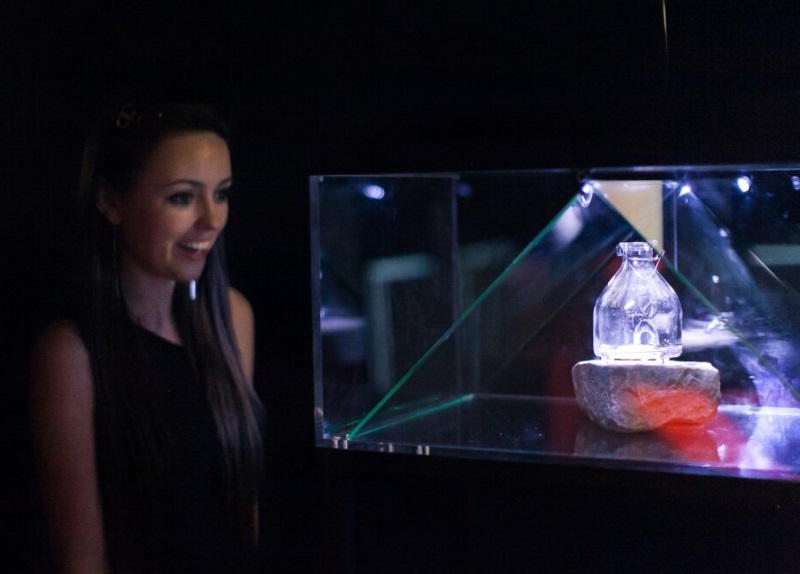
Should we always believe what we see right in front of us? Can you trust your senses? Has technology made things clearer or muddied the waters between reality and fiction? And is anything really as it seems? Illusions distort the senses and mystify our logical thinking. The human mind can be easily fooled.
The exhibition was realised by Science Gallery Dublin in 2013 and travelled the world before reaching Science Gallery Venice.
Why an exhibition on Illusion at Science Gallery Venice? Illusions are both entertaining and educational, it’s true. They also represent one of the most idealized forms of collaboration between art and science. Artistic works that employ the techniques of illusion simply don’t work without the science behind them, and likewise, illusions cannot be described unless they are implemented in a way that people can experience them. This co-dependence implies a level of complete collaboration between artist and scientist. But illusions are important for another reason, too - a reason that probably explains their popularity over the centuries.
"Illusions show us that the world is not always as it seems, that our judgements are not always absolute, and that we should always be skeptical. These values are central to both the scientific and artistic pursuits - to keep questioning, to never take things for granted, and to always dig deeper to find the underlying truth" (Neal Hartman).
Venice
Science Gallery
Illusion: nothing is as it seems
January 29 – April 4, 2020






